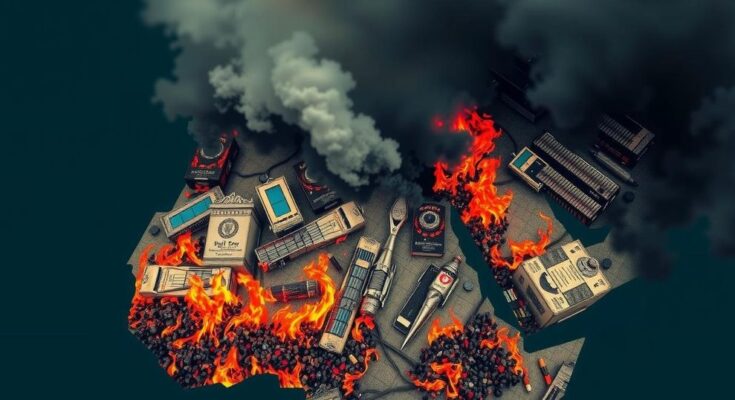Ongoing hostilities exacerbate the humanitarian crisis in Syria, with aid operations suspended following deadly airstrikes. In Iran, survivors of the 2022 protests demand justice for human rights violations. South Sudan prepares for its first democratic elections, with calls for civic freedoms and effective governance as crucial steps toward peace and stability.
The humanitarian crisis in Syria continues to deepen amid heightened violence, with recent airstrikes affecting humanitarian operations at the Ad Dabousiyah border crossing with Türkiye. Civilians, including a volunteer from the Syrian Arab Red Crescent, were killed, leading to the suspension of all aid activities at the crossing. The ongoing violence, particularly in Idlib, also resulted in child casualties, prompting many NGOs to pause their assistance programs. Meanwhile, aid is still being delivered through the Bab Al-Hawa crossing.
In Iran, survivors of the state’s violent crackdown on the 2022 ‘Women, Life, Freedom’ protests are calling for accountability. The Independent International Fact-Finding Mission interviewed over 50 survivors who recounted severe human rights abuses, including torture and arbitrary detention. The FFM underscored the necessity of a victim-centered approach to justice while urging ongoing support for survivors facing continuous repression.
In South Sudan, the head of the UN Mission, Nicholas Haysom, has urged provincial governors to promote civic freedoms in preparation for the country’s upcoming elections, set for December 2026. Haysom emphasized the importance of fostering an open political environment and called for effective public service management to build trust among citizens. He also advocated for the training of security forces to ensure safety during the election period.
The situation in Syria is critical due to escalated hostilities, affecting humanitarian aid and civilian lives significantly. The international community, through organizations like OCHA, is trying to address these challenges while ensuring the safety of aid workers and the continuity of necessary supplies. Concurrently, in Iran, the aftermath of the 2022 protests has revealed serious human rights violations, prompting calls for global accountability processes. In South Sudan, the upcoming elections represent a pivotal moment for the nation, necessitating engagement and effective governance to overcome past conflicts and instability.
The ongoing crises in Syria, Iran, and South Sudan illustrate the urgent need for international attention and intervention. In Syria, humanitarian efforts face severe challenges due to violence, highlighting the plight of civilians. In Iran, survivors’ calls for justice represent a critical human rights issue that requires global awareness and action. Meanwhile, South Sudan’s electoral preparations signal a potential transformation in governance, but achieving stability mandates commitment from state leaders. Collectively, these situations underscore the complex interplay of conflict, humanitarian needs, and the quest for justice and democracy.
Original Source: www.miragenews.com




